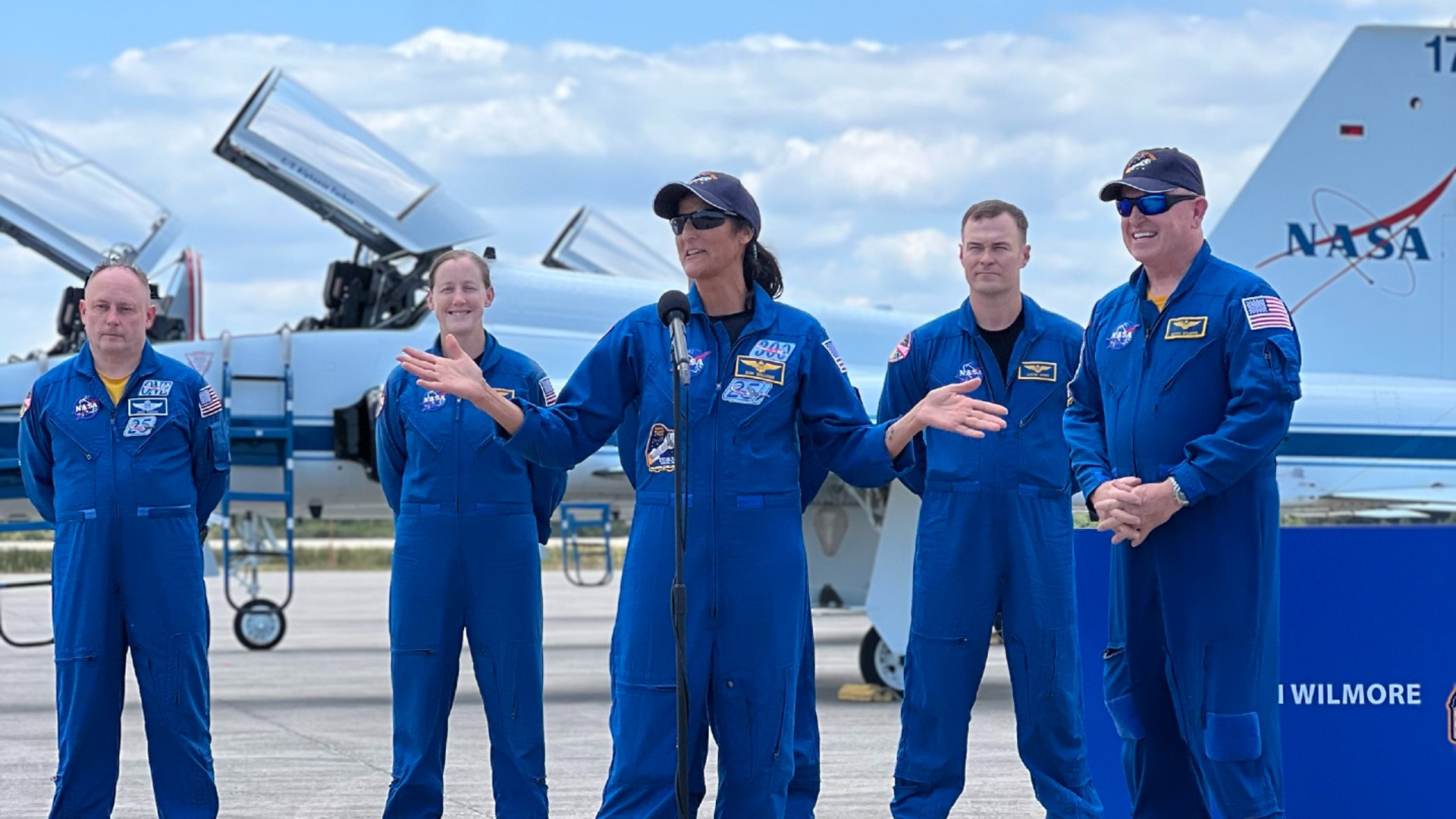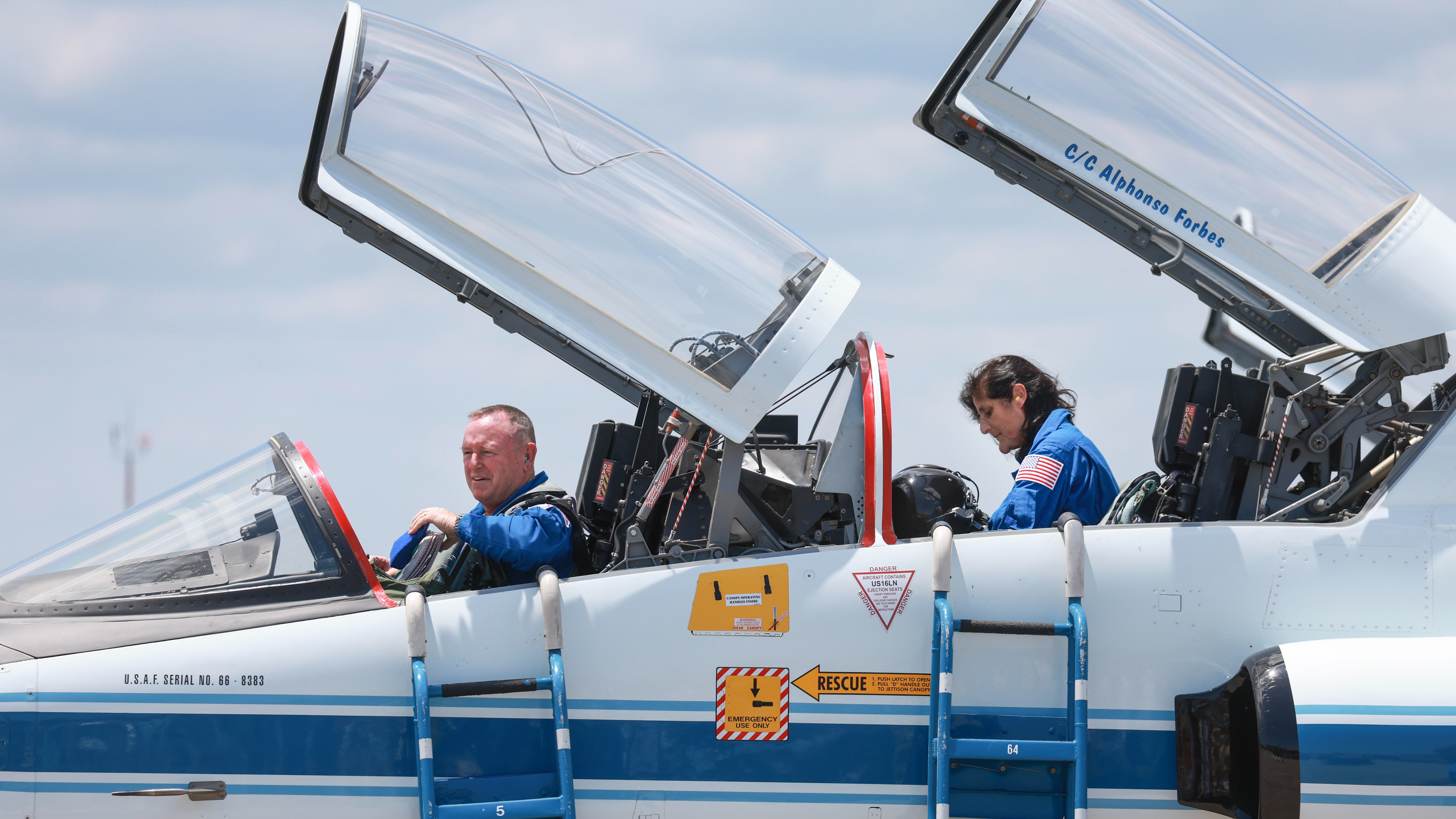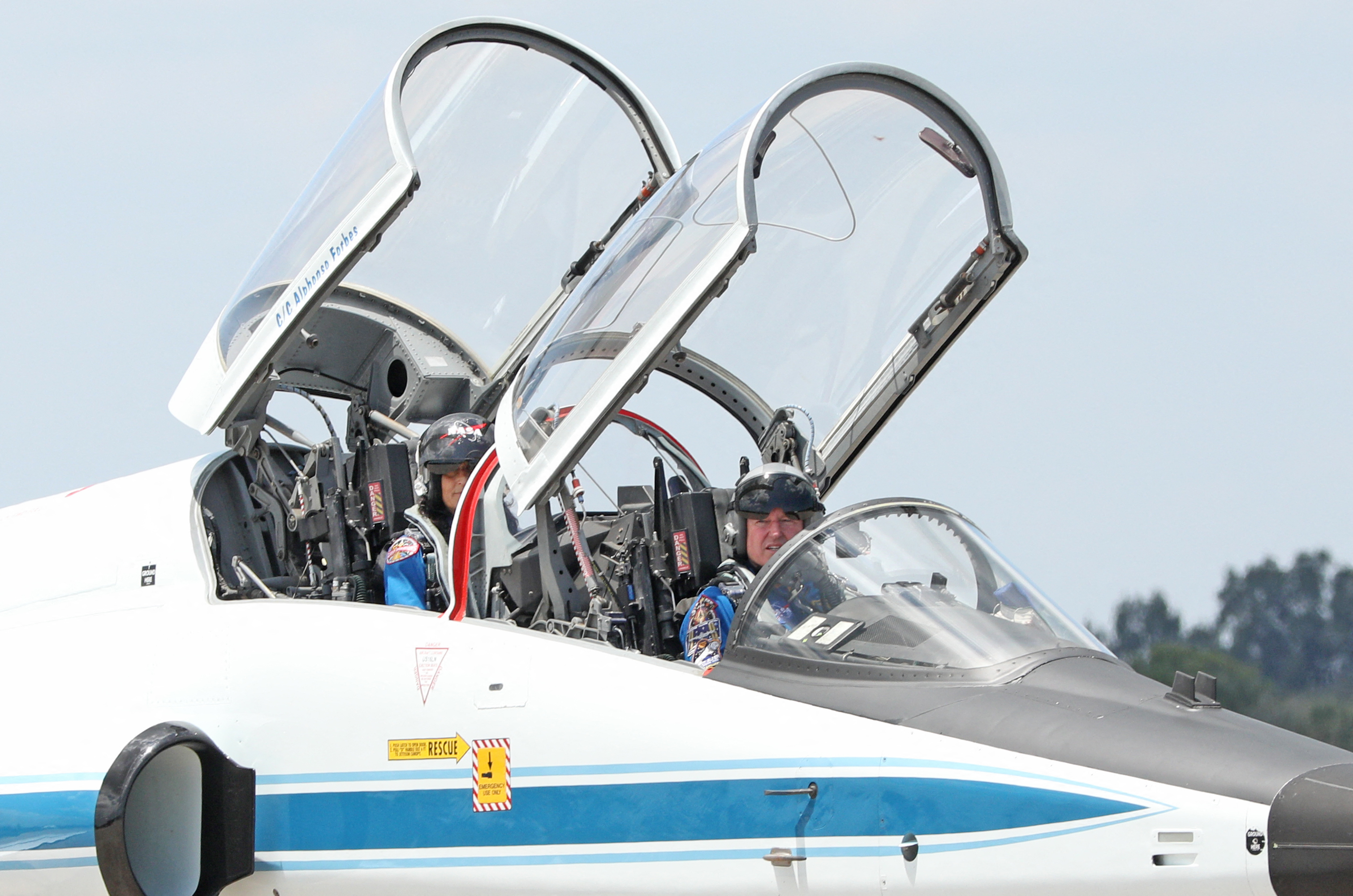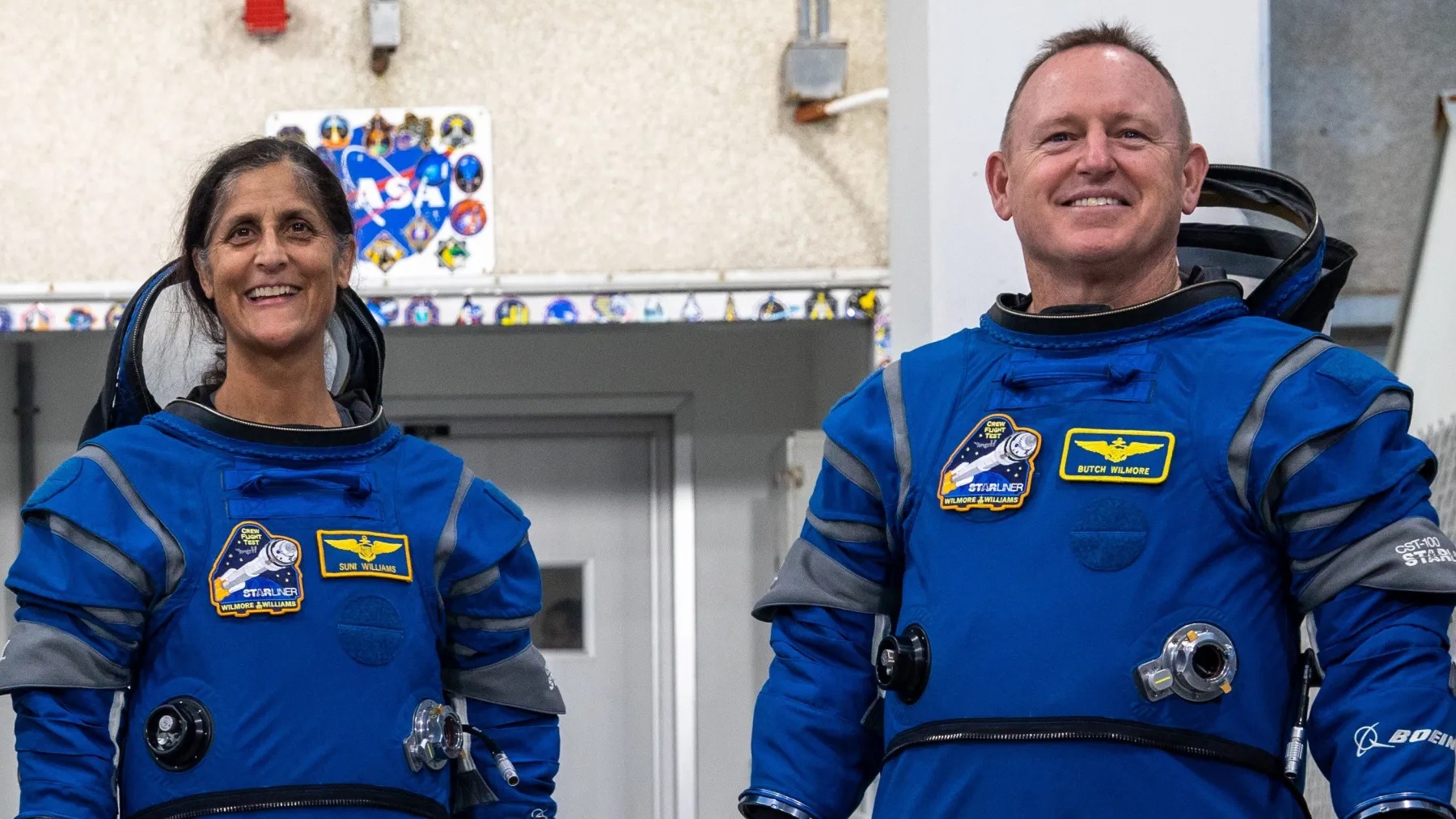'I'm sure we'll find things out': NASA astronauts fly to launch site for 1st crewed Boeing Starliner mission to ISS on May 6 (photos)
The crew flies to space on May 6, if the schedule holds.

The first Starliner crew is ready to fly on May 6, the team told reporters upon arriving at the launch site. This will mark the spacecraft's debut mission with humans on board.
The two NASA astronauts to fly aboard Boeing Starliner, commander Barry "Butch" Wilmore and pilot Suni Williams, arrived at NASA's Kennedy Space Center (KSC) near Orlando, Florida today (April 25) for their historic launch. Aside from being the first humans to fly on Starliner, the astronauts (both former U.S. Navy test pilots) will also be the first people to ride on board the United Launch Alliance (ULA) Atlas V rocket.
This International Space Station (ISS) mission, known as Crew Flight Test, has been delayed about four years due to various issues with Starliner, which Wilmore and Williams have continually stressed are long resolved. But new things to tackle will surely come up during their approximately one-week test mission, Wilmore told reporters.
"Do we expect it to go perfectly? This is the first human flight [with] the spacecraft. I'm sure we'll find things out," Wilmore said in remarks livestreamed on NASA TV, minutes after he and Williams arrived on the tarmac in a two-seat T-38 jet used for training. "That's why we do this. This is a test flight. So when you do test, you expect to find things. We expect to find things."
Williams praised the trainers with Boeing and NASA for integrating "lessons learned" from two previous uncrewed flight tests with Starliner while getting procedures ready for the first astronaut flight, and testing those procedures in simulators.

"We had the kitchen sink essentially thrown at us the other day, on a sim — and we came out fine," Williams said. "So I have all the confidence in not only our capabilities, the spacecraft capabilities, but also our mission control team who's ready for the challenge. They're up for it."
Get the Space.com Newsletter
Breaking space news, the latest updates on rocket launches, skywatching events and more!
Boeing, alongside SpaceX, was tasked by NASA in 2014 to send commercial crew missions to the ISS. (NASA used to ferry most of its astronauts there using the space shuttle, and temporarily pivoted fully to using Russia's Soyuz spacecraft between the shuttle's retirement in 2011 and SpaceX's first crewed mission in 2020.)

Boeing's commercial crew contract for Starliner is valued at $4.2 billion, compared to SpaceX's $2.6 billion. But while SpaceX has sent 11 crews to the ISS aboard Crew Dragon, Starliner was delayed by four years amid numerous technical problems.
Starliner's first uncrewed flight to the ISS in 2019 failed to reach its destination. After implementing dozens of fixes, Starliner's second ISS flight (also without astronauts) made it there and back in 2022. The first crewed spaceflight for Starliner got delayed in 2023, however, after more issues were found with the spacecraft, with its main parachutes (the suspension lines carried less load than engineers thought) and wiring (largely covered with flammable P213 tape).
Related: 1st Boeing Starliner astronauts are ready to launch to the ISS for NASA (exclusive)

The crew entered quarantine on Tuesday (April 23) at NASA's Johnson Space Center, roughly a week after their last visit to KSC on April 16 to see Starliner make a six-mile (10-kilometer) journey between buildings to be integrated with the Atlas V. Engineers are testing communications between the rocket and spacecraft before the stacked rocket rolls out to Cape Canaveral Space Launch Complex 41.
A flight readiness review is ongoing this week by NASA and Boeing officials, and a press conference is expected later today around 4:30 p.m. EDT (2030 GMT) that will run live here on Space.com. NASA's commercial crew program gave CFT its "go for launch" on April 18, following a flight test readiness review, officials previously wrote on X (formerly Twitter).
If CFT's flight goes to plan, the first operational mission (Starliner-1) is set to fly in early 2025 at the earliest, for a six-month tenure. On board Starliner-1 will be NASA's Scott Tingle, NASA's Mike Fincke and the Canadian Space Agency's Joshua Kutryk. If successful, Boeing will then join SpaceX and Russia, which flies some NASA astronauts to the ISS for technical and policy reasons, in delivering regular space station crews for normal half-year rotations.
This story was updated at 4 p.m. EDT with new timing for the flight readiness review conference.
Join our Space Forums to keep talking space on the latest missions, night sky and more! And if you have a news tip, correction or comment, let us know at: community@space.com.

Elizabeth Howell (she/her), Ph.D., was a staff writer in the spaceflight channel between 2022 and 2024 specializing in Canadian space news. She was contributing writer for Space.com for 10 years from 2012 to 2024. Elizabeth's reporting includes multiple exclusives with the White House, leading world coverage about a lost-and-found space tomato on the International Space Station, witnessing five human spaceflight launches on two continents, flying parabolic, working inside a spacesuit, and participating in a simulated Mars mission. Her latest book, "Why Am I Taller?" (ECW Press, 2022) is co-written with astronaut Dave Williams.









